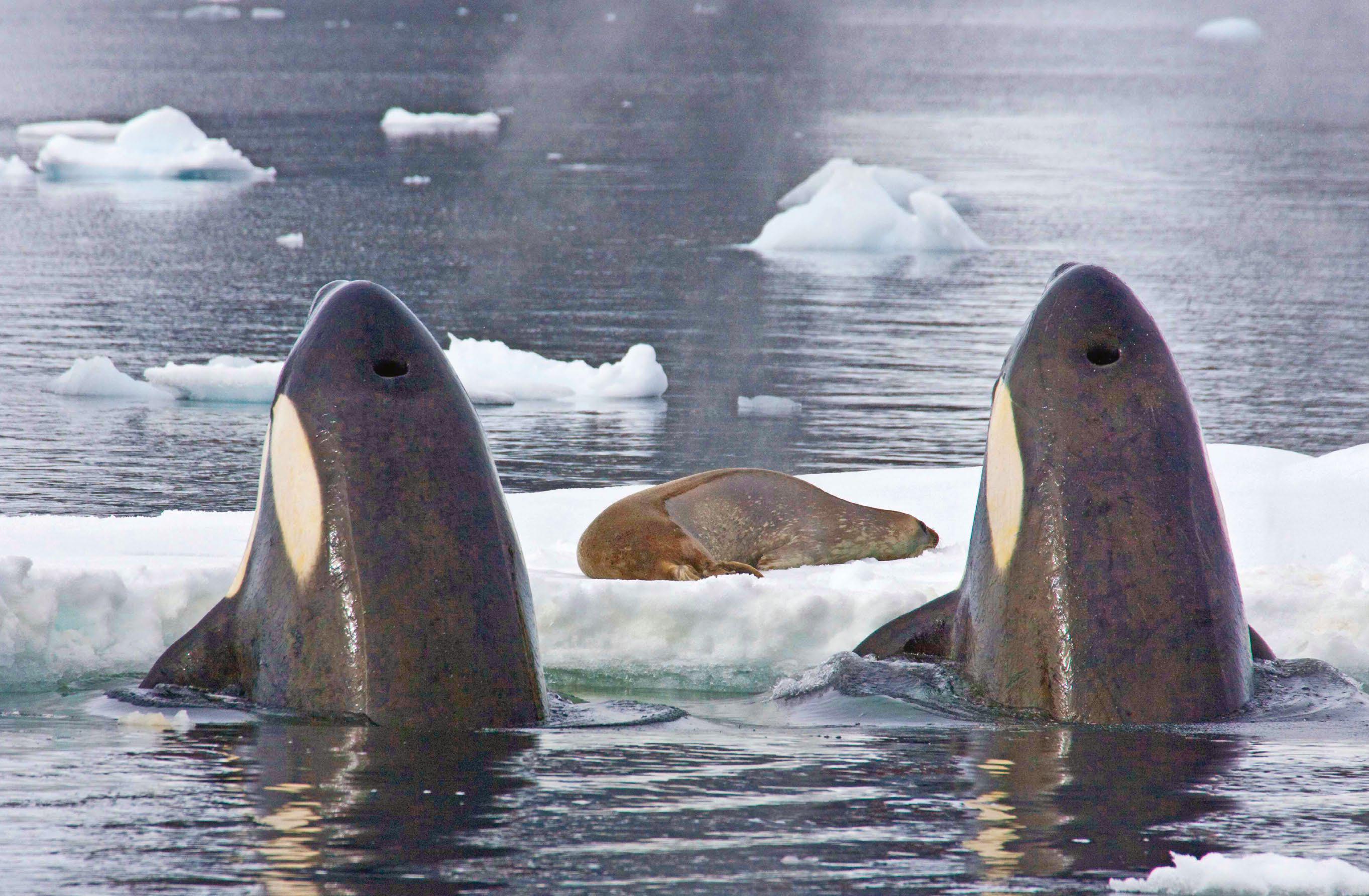試す 金 - 無料
Should TV crews save dying animals?
The Week Junior Science+Nature UK
|Issue 62
Some nature documentary crews have saved animals they have been filming from danger.
-

The lonely seal pup is surrounded by a pod of hungry orcas. The hunters circle their prey and the seal's big eyes turn to the camera. Nature documentaries often feature scenes where animals' lives are in danger and filmmakers almost never intervene. "Film crews have to capture events as they unfold, whatever their feelings," says Sir David Attenborough. However, in 2018, a television crew filming the nature documentary Dynasties saved penguins and their chicks from a fierce storm. The birds were trapped in a icy ravine and the crew dug some steps so they could climb out. Their action divided opinions on whether it's right for filmmakers to help endangered animals.
If the question is "should documentary makers ever try to help?", the answer is yes, says Will Lawson, director of Dynasties. "There's no rule book," he told The Times. "You can only respond to the facts that are right there in front of you." Sometimes nature is needlessly cruel; no other animal would benefit from the penguins' deaths, and no human would be harmed in the process.
Doug Allan, a well-respected cameraman, believes that leaving nature to take its course is the most important principle. However, in the case of the penguins and their babies, the crew didn't touch or "spook the penguins", they just improved their chances of getting themselves to safety. Allan told The Guardian that doing this was, "entirely justifiable".
このストーリーは、The Week Junior Science+Nature UK の Issue 62 版からのものです。
Magzter GOLD を購読すると、厳選された何千ものプレミアム記事や、10,000 以上の雑誌や新聞にアクセスできます。
すでに購読者ですか? サインイン
The Week Junior Science+Nature UK からのその他のストーリー

The Week Junior Science+Nature UK
Make square bubbles
Build a frame to capture straight-edged bubbles.
1 mins
December 2025

The Week Junior Science+Nature UK
Smart scientists win big
The Nobel Prize rewards some of the world's brightest minds in science - as well as literature, economics and peace for their discoveries.
1 min
December 2025
The Week Junior Science+Nature UK
Build a memory game
Test the power of your mind with this colour-changing brain game.
2 mins
December 2025

The Week Junior Science+Nature UK
Celebrating a hero
Remembering Dr Jane Goodall, who devoted her life to the study and conservation of chimps.
2 mins
December 2025

The Week Junior Science+Nature UK
Wildlife watch
Jenny Ackland discovers the wonders of nature you can spot this month.
2 mins
December 2025

The Week Junior Science+Nature UK
Make mini cottage pies
Cook up a winter warmer that will feed your whole family.
1 mins
December 2025
The Week Junior Science+Nature UK
HOLY ROLLER
The Kiruna Church was once voted Sweden's most beautiful pre-1950 building.
1 min
December 2025

The Week Junior Science+Nature UK
BIONIC BEINGS
Patrick Kane welcomes you to a future of superhumans, where people and robots combine.
4 mins
December 2025

The Week Junior Science+Nature UK
The world goes green
Renewable energy produced more electricity worldwide than coal in the first half of 2025, according to a report from research group Ember.
1 min
December 2025
The Week Junior Science+Nature UK
STORM IN HEAVEN
This photograph shows an enormous thunderstorm cloud glowing pink against a deepening blue sky. Called Eruption in the Sky, it was the winner in the young category of the Standard Chartered Weather Photographer of the Year Competition 2025, run by the Royal Meteorological Society.
1 min
December 2025
Translate
Change font size

